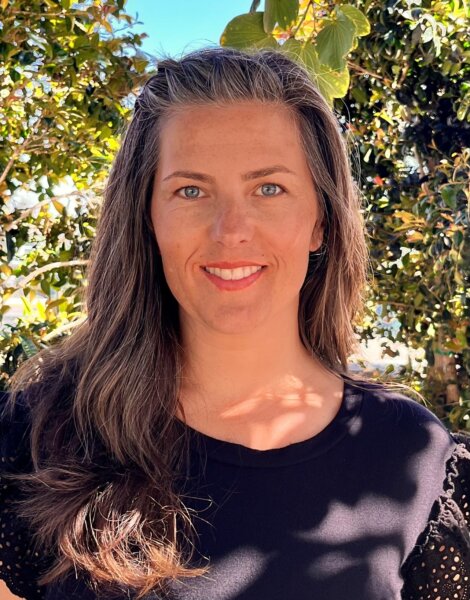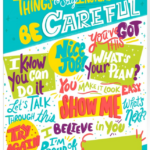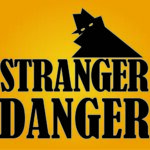






Have No Fear, Danger is Here!
Avoiding all risk means avoiding all growth — even the growth that comes from some miserable mistakes. That’s what this essay, reprinted from the SoulTapWithMolly blog, makes clear. Molly Smith is a life coach on Whidbey Island, Washington. Her tag line, which we love, is “I will help you understand where you limit yourself and support you in the changes you want to make.“ An adventurous childhood helps with that, too!
Have No Fear, Danger is Here!
by Molly Smith
It was winter in the Pacific Northwest, and one of those snowpocalypse situations where everything became covered in white, and the island would get snowed in. It wasn’t very often that the snow hit like that, and I remember how magical it felt. Growing up, my family had seemingly endless outdoor space where we spent most of our time, rain or shine. One of those cold days, my Irish twin sister, our younger brother and I, set out on another adventure. We were all under 9 years old.
There was a small pond that we were forbidden to go near without an adult, especially during winter. So, what did we do on this wonderland of a day? You guessed it. To the pond we went. When our woods froze over, my sister and I hoped for the pond to freeze too, so we could go “ice skating.” We were bundled up, and our parents were blissfully unaware of our destination.
Frozen (seemingly) solid
The pond was at the bottom of a ravine, and it took some trekking to get to. As we came down that last hill and around the bend, we were excited to find out if it had been cold enough for long enough to make the pond freeze. This day was a yes! We raced down to the edge, and slowly put pressure on the ice to test how solid it was. First the toe of our shoes. Then a foot. A little more weight, a little more, a little more… until we were brave enough to fully stand. There was likely a little “you go first, I went first last time” going on, but we made sure our brother stayed an observer.
And then we slid. We slid around going as far and as fast as we could on one foot (no skates, we were’t supposed to be skating!). We held ice Olympics, and danced like there was no tomorrow. Who knows how much time passed…
In between laps, we noticed our brother was throwing a large piece of wood repeatedly onto the edge of the ice, making a hole wider and wider. He was following our instruction not to follow us, but he got bored, and was doing his best to have some fun. We were all in our own little worlds, together, in the big snowy magical one.
First Aid — and fibbing
Then we heard a splash. We looked over to find our little brother in the shallow the water. Efffffff
Since responding to his fate was already ingrained, getting back to his side was immediate. We pulled him out of the water and tried our best to warm him up (simultaneously formulating a fib to recite to our parents). We were shaken as we made the somber hike home, as quickly as we could, reminiscing about the fun and wishing it hadn’t stopped short. We stealthily changed his clothes outside by the house, and it wasn’t ever really talked about again (except looking back as an epic moment). Because those things happened.
The reason I’m sharing this story, and the real importance of it, is that it served us. And so did all the ones like it before it and after. Those moments gave us freedom, and taught us the ability to navigate. We were literally forced to make instantaneous decisions, and then experience any consequences. We learned how to adapt and grow stronger. We developed resilience and confidence. We became experts of our intuition and learned how to creatively solve problems at the drop of an icy coat. We were brave. We were free. We believed we could do anything. And that laid a foundation that carried on within us as we created new lives, relationships, and unknown environments and encounters. There were definitely (many) dangerous situations woven in there, and lots of cuts and bruises. And even occasional broken bones. (All of my brothers and sisters who grew up on the island know exactly where I’m coming from.)
Kids don’t need that much saving
Today, I strongly encourage my children to determine and establish their boundaries, learn their abilities, and experiment with doing challenging things. I want them to have unique life experiences, maybe even some obstacles, and be confident in handling whatever’s in front of them. It should go without saying, that most parents would never wish their children to be in life threatening situations, or even be in pain. Most of us love our children in ways we’d never loved before. My children often come first in my life, and I would do absolutely anything to save their lives. But the thing is, they don’t really need much saving.
There’s a theme I’m noticing out in the world today, and in conversations with different people, and it’s that much of how people parent is coming from fear. Fear of children getting hurt. Fear of their failure. Fear of them not being “successful” or “good enough.” Maybe there’s some fear about them not getting into the “right” school. And while the intentions are probably good, the long-term outcome usually isn’t. Children are not really exposed to getting hurt anymore, and are actively shielded from “things” that could potentially maybe cause a little pain. The side effect of this constant vigilance is that they don’t get to learn to trust their intuition and identify their boundaries.
We forget how competent kids are
Who knows what their potential could be if they aren’t getting the chance to see what they’re capable of. They’re not given opportunities to expand their comfort levels to find out how well they can handle difficulties. Children are more competent than they’re given credit for, and they’d have more confidence if they were authorized to test themselves. I think of how my own children haven’t experienced the same unrestricted freedom I had, and I turn my focus to how I can get them a little more of what they deserve. I’m working on that plan.
I have the utmost gratitude toward my parents, and an immense trust in my own parenting because of the way I was raised. My dad chose our stomping grounds specifically because he didn’t “want anybody telling me how to raise my kids.” He knew what he wanted to instill in us, and he knew how. My parents strongly believed in us being stewards of our capabilities, and that we were intuitive and clever enough to figure difficult things out. If we could get ourselves into a situation, we needed to get ourselves out. If (when) we did need their help, we’d better have a good reason. We weren’t always the most efficient or mainstream, but we learned to trust in ourselves, and trust in each other. We also formed resiliency, and learned creative problem solving like our lives depended on it. Because in some of those moments, it seemed like it did.
Real harm vs. beneficial risk
Seventeen years ago I told my dad how much I appreciated the lessons I learned in childhood because of how he allowed us to live. I will never forget our conversation, and the smile and pride on his face.
I’m not suggesting you put your children into harm’s way. We have learned a lot about the past, and about trauma. That’s not what this is about. This is about trusting and supporting our children. And letting go a little bit so they can grow.
If any of this resonates with you, and you feel you could be parenting from some level of fear, I invite you to read the book “Free-Range Kids” by Lenore Skenazy. I read it the year it was published, when my first child was born. It was definitely meant to be. I grew up the “Free-Range” way, but where I’m from it was called “Normal Parenting.” City kids were a new thing to me, so I wanted to understand how to parent in that unfamiliar culture. It changed my life, and I’ve been talking about it ever since. Lenore is also the founder of Let Grow.
If you’d like to actively work on identifying if/why you are parenting from fear, or feel like a “helicopter parent,” I can help you figure it out. I can also help you move away from living with those fears and support you in finding the best ways for you to empower your children.
Thank you to all the parents who take the steps that feel scary and make your hearts skip beats. You are doing this for them (and you!). Growth is good.
xo
Molly Smith, Life Coach

Molly Smith



Comments are closed for this article.